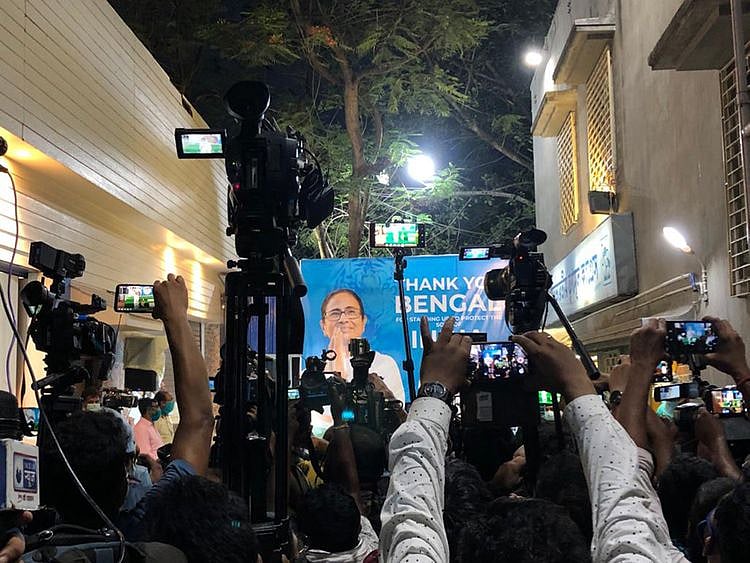Assembly elections: Indian state has rejected negative politics
State and federal governments must now focus on combating the pandemic

The latest round of state election results from India on Sunday indicate a sobering defeat for the Bharatiya Janata Party (BJP) in the eastern state of West Bengal — where Prime Minister Narendra Modi campaigned a record 18 times amid the Covid crisis and yet failed to dislodge its firebrand Chief Minister Mamata Banerjee.
While India’s ruling BJP managed to retain the north-eastern state of Assam, it failed to make any inroads in the socialist bastion of Kerala despite a high-decibel campaign, and its regional alliance also failed to win the southern state of Tamil Nadu.
But it is Bengal which became the centre of attention in the elections, showcased as a barometer of India’s political future. It’s not only Modi and Indian Home Minister Amit Shah who travelled to and campaigned relentlessly in Bengal, but almost the entire Indian cabinet of ministers and the national leadership of the BJP that threw their weight behind the aggressive campaign and virtually stationed themselves in the state — at a time when the coronavirus pandemic was surging across India to record levels.
But for a state with more than 30 per cent of Muslim and other minority voters, Bengal has emphatically rejected the messaging of that campaign, which relied heavily on communal polarisation and divisive politics and often devolved into bitter personal attacks and outright misogyny.
Despite Mamata’s 10-year term as chief minister, voters seem to have neither factored in anti-incumbency nor the several cases of corruption that her Trinamool Congress party is accused of.
Handling of the pandemic
The BJP’s massive defeat in Bengal is therefore a serious political setback for Modi and his party — at a time when the federal government is facing widespread criticism over its management of the unprecedented Covid crisis. It’s too early to decode whether that handling of the pandemic has cost the BJP the Bengal election.
But Modi and his cabinet ministers were widely criticised for continuing to hold mass rallies in the state even as infections grew dramatically.
It’s imperative for the BJP to introspect on its agenda and go back to its plank of good governance that helped Modi win a landslide in the 2019 parliamentary polls. More importantly, with elections over, the focus of the federal and state governments must urgently move to the massive crisis India is staring at — with the country becoming the first globally to cross the 400,000 mark for daily infections.
State and federal governments must work hand-in-hand and deploy all their resources and energy to combat the rise of infections, rush supplies of oxygen to hospitals across the country and resuscitate the faltering national vaccination campaign.
Sign up for the Daily Briefing
Get the latest news and updates straight to your inbox
Network Links
GN StoreDownload our app
© Al Nisr Publishing LLC 2026. All rights reserved.